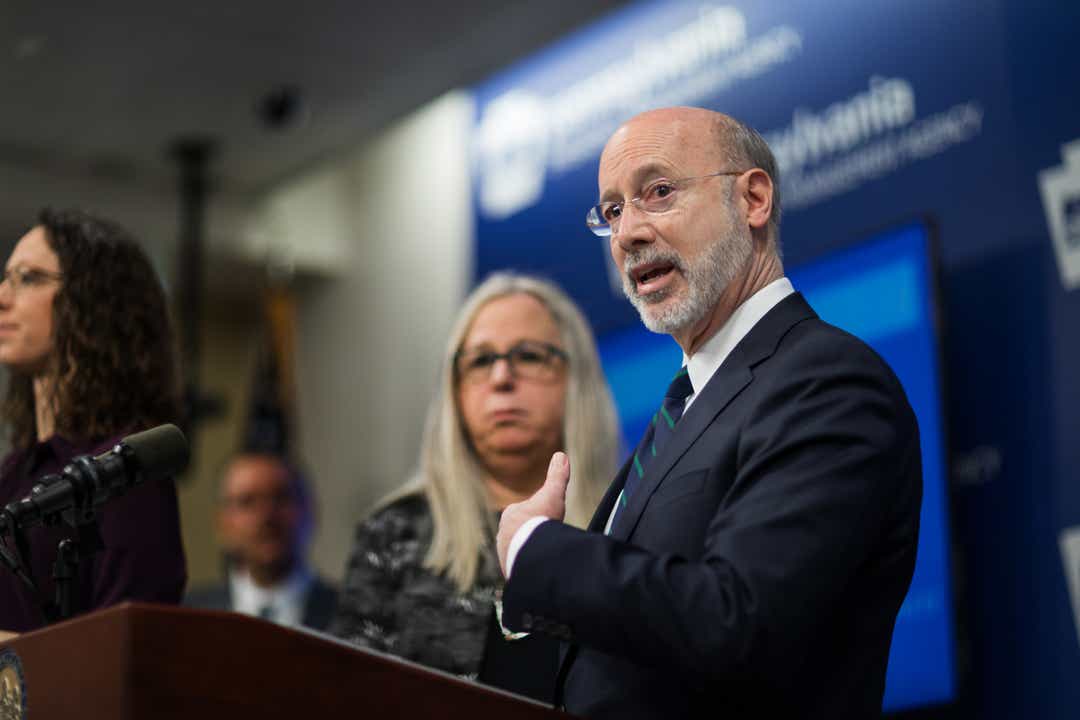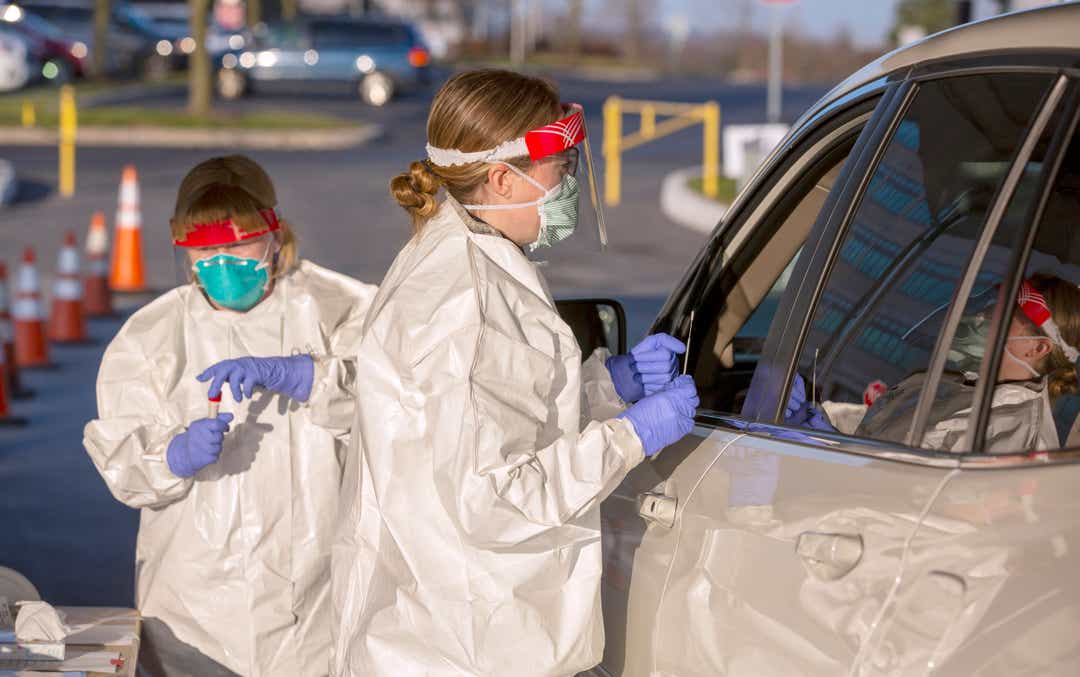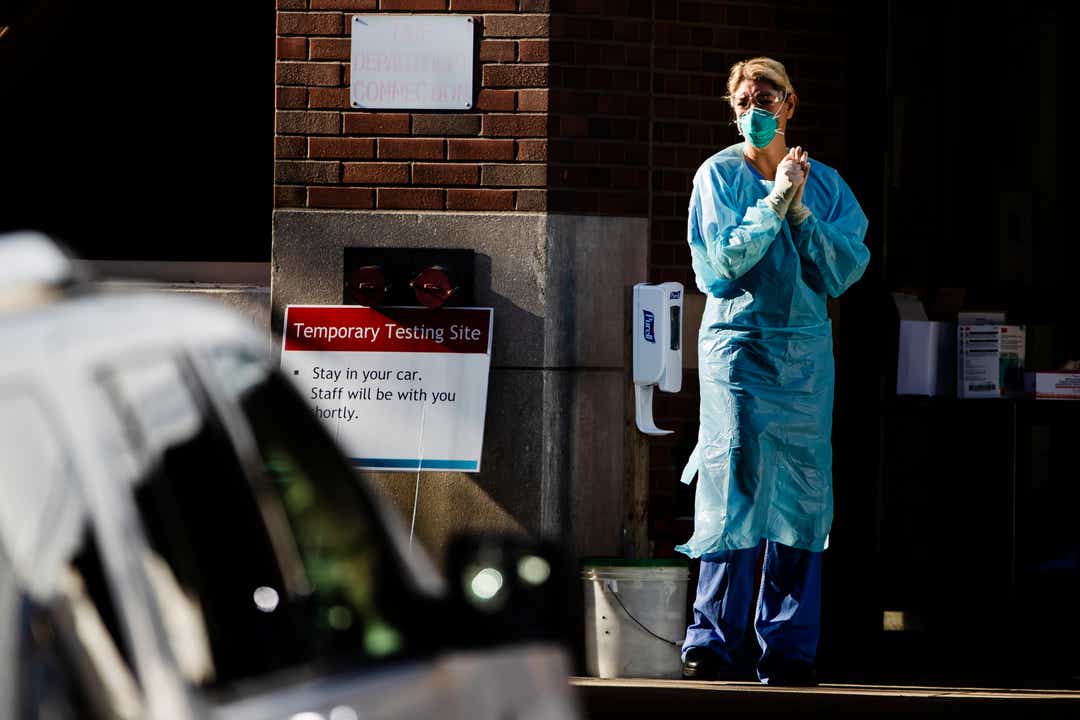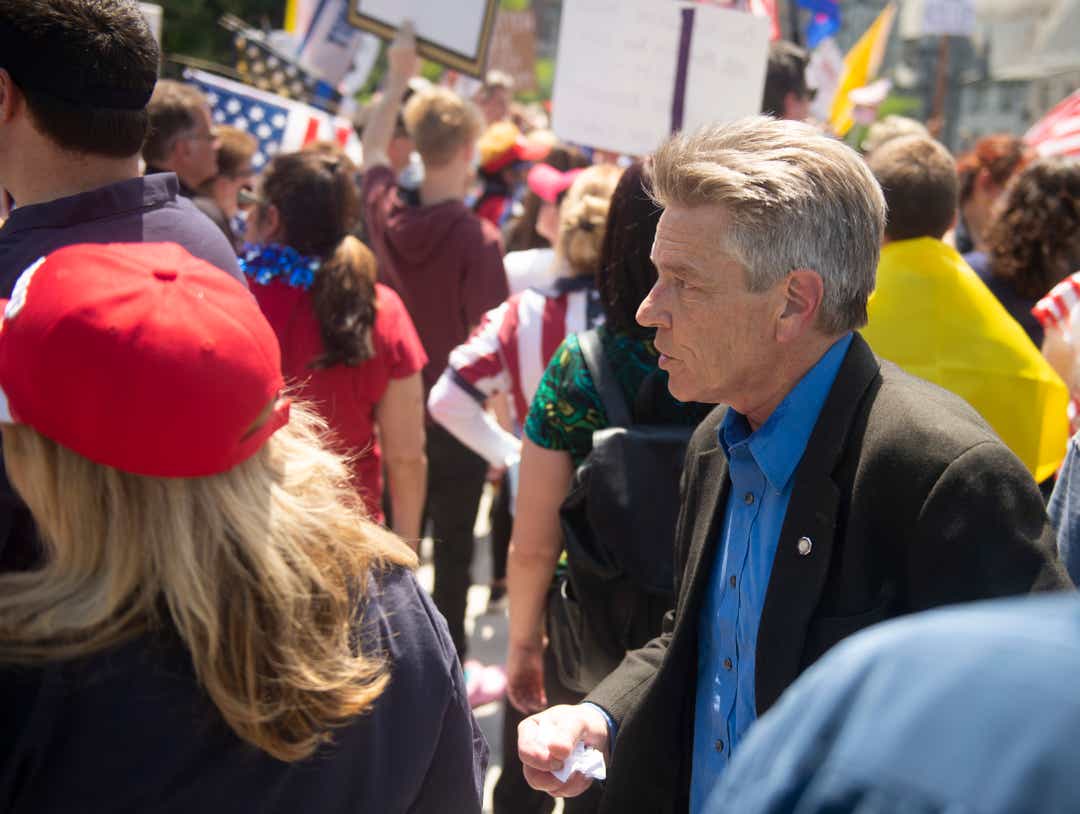Costly COVID-19 mistakes: What Pa. needs to do to prepare for the next wave of the coronavirus
Candy Woodall USA TODAY Network Pennsylvania Capitol Bureau
Published 1:31 PM EDT Aug 11, 2020
Editor's Note: COVID-19 killed tens of thousands in the Northeast, caused massive unemployment and wrecked the economy. In an ongoing series of stories, the USA TODAY Network Atlantic Group, 37 news sites including those in south-central Pennsylvania, examines what the government got wrong in its response to the virus, what policies eventually worked — and why we remain vulnerable if the coronavirus strikes harder in the fall.
The summer was expected to offer a reprieve from COVID-19.
But after a two-week slowdown in May, cases started to rise again in Pennsylvania, where more than 116,000 people have been infected and more than 7,300 have died.
"The idea that the summer throughout the country was going to be very quiet has been proven not to be true," said state Secretary of Health Dr. Rachel Levine. "We’re going to continue to be fighting this through the summer, and there’s a concern there’s going to be a bigger resurgence in the fall."
The fall will bring colder weather and have more people inside, which could lead to an increased spread of the coronavirus, said Gov. Tom Wolf.
Costly COVID-19 mistakes: Pa. Dems seek more testing, Republicans chide lone-wolf approach

Levine and Wolf have been fighting COVID-19 for six months, and the most important thing they've learned in that time is that it's "very challenging to predict," Levine said.
"It's a novel coronavirus, and we are learning things all the time," she said.
But they have learned some things that work. There are proven practices that help to stop the spread of the disease.
To effectively fight that fall wave, there are a few things Pennsylvania needs to do, according to multiple sources.
Covid testing
When the first two cases were detected in the eastern side of the state in March, Pennsylvania was competing with hard-hit states like New York and New Jersey to get specialized testing swabs and test kits as the coronavirus was nearing its peak in the northeast.
Every state was faced with a national testing shortage as the virus was spreading rapidly.
But since then, hospitals developed their own tests and the state has worked to expand testing in Pennsylvania.
Anyone who believes they have covid symptoms can now get a test in Pennsylvania, Levine said.
Costly COVID-19 mistakes: Testing shortage was a key factor in virus spreading across Pa.
Results, though, are still taking some time.
"We're stuck because we're competing with other states that are having outbreaks...," Levine said. "The amount of tests coming out of the South and West have Quest and LabCorp overwhelmed."

Quest and LabCorp have both cited dramatic increases across the country as the reason for a lag time in results that can range anywhere from a few days to nearly two weeks.
Labs are also struggling through a global shortage of testing supplies, according to the American Clinical Laboratory Association.
The need for expanded testing is an area where Democrats and Republicans seem to agree.
U.S. Sen. Pat Toomey, a Republican from the Lehigh Valley, for months has joined his counterpart Sen. Bob Casey, a Democrat from Scranton, in calling for more testing and a national strategy.
The state is testing 15,000 to 20,000 people a day. The highest level reached 28,000 tests per day at one point, Levine said.
U.S. Rep. Conor Lamb, a Democrat from Allegheny County, said testing is one of two “core problems” that need to be addressed.
Testing, he said, “is a failure of the federal administration to really coordinate that and to make sure that people are able to solve these problems.”
Lamb said the continued issues with testing demonstrate Trump’s failure to offer “World War II-level leadership” to a country fighting a pandemic.
The Trump administration on Aug. 10 said it would support Congress in providing billions in additional funding for COVID-19 testing and contact tracing in the states.
Costly COVID-19 mistakes: Pennsylvania nursing homes in midst of second wave of COVID-19
COVID-19 in Pa.: This is how face masks are enforced in nursing homes and hospitals
COVID-19: PA schools fight pandemic concerns, politics in reopening
PPE
Because there wasn't an expected slowdown in cases over the summer, states across the country didn't have a chance to stock up on personal protective equipment, such as N95 face masks and surgical gowns, before a second wave.
"I'm worried about the national stockpile of PPE," Levine said.
Toomey said a pair of bipartisan bills he and Sen. Maggie Hassan, a Democrat from New Hampshire, have introduced will help replenish the national stockpile.
The Stop PPE Taxes Act and Strategic Global Supply Chains Act aim to address nationwide shortages by temporarily cutting taxes on imported PPE, requiring interagency coordination around domestic PPE supply and directing the United States International Trade Commission to regularly update its current list of medical products needed to fight COVID-19.
"There are still shortages of PPE across the country, and our national stockpile needs to be replenished," Toomey said. "Our legislation eliminates roadblocks in the global supply chain that are making it harder and more expensive to obtain PPE and testing kits vital for keeping Americans safe.

The American Health Care Association and the National Center for Assisted Living told Wolf and other governors in the National Governors Association there is still a significant shortage of personal protective equipment in nursing homes and long-term care facilities.
Nearly 20 percent of nursing homes have told the Centers for Disease Control and Prevention that they either do not have or have less than a one-week supply of PPE, and more than half of assisted living communities have less than a two-week supply of N-95 masks and gowns, said Mark Parkinson, president and CEO of the American Health Care Association and the National Center for Assisted Living.
"N-95 masks are still not available and were not included in the FEMA shipments to nursing homes," he said. "Given the fact we are several months into the response of this pandemic and the lack of PPE supplies is still an issue is very concerning."
Pennsylvania's stockpile of PPE is currently in good shape, and state health officials want to continue to add to it before a potential fall spike.
"Our supply of PPE in Pennsylvania is very good," said state health department spokesman Nate Wardle. "We are continuing to assist long-term care facilities who need it, while also building up our supply for what we are looking at in the fall. Our supply of PPE now far exceeds what it was prior to COVID-19 as we prepare for a next wave."
Masks
The easiest thing for the state to do to guard against a fall wave is also the hardest.
A mask mandate is a simple order without a supply-and-demand problem like testing and PPE, but it's an area where Wolf and Levine face ideological opposition.
"Wear a mask," Wolf frequently says.
"My mask protects you. Your mask protects me," Levine frequently says.
Most Pennsylvanians seem to comply with those directives, based on the number of people wearing masks in stores and other public spaces.
But there is a sometimes loud opposition party to the state mask mandate, with some Republicans saying they disagree with Wolf for medical beliefs or personal liberty.
More: In Pennsylvania, fight against wearing masks involves some key Republicans, and liberty

Rep. Russ Diamond, a Republican from Lebanon County, said he has a few problems with wearing masks: They create suspicion that everyone has COVID-19; he thinks they're ineffective; and he thinks they're unfair to people with certain medical conditions.
"We're creating a society where we're all isolated from one another, and we assume everyone is dangerous and carrying a disease," Diamond said. "We're turning it into: Everyone is guilty until they're proven innocent."
Also, despite what numerous scientists and doctors say, he doesn't believe masks work.
Diamond thinks a happy medium is: "If you want to wear a mask, fine. I won't say anything bad about you. I choose not to wear one. Please don't say anything bad about me. I'm not going to force myself into your personal space."
The local and national medical community is advocating for wearing masks, saying they prevent the spread of disease.
Christina Hansen, a cardiac intensive care nurse who works with WellSpan patients critically ill with COVID-19, recently stressed the importance of wearing masks.
She said she has seen a lot of patients who have been in and out of the COVID unit, and on and off life-saving ventilation multiple times.
"Please, please, it is critical you wear your mask outside everywhere," Hansen said. "Wearing your mask is a simple way to do your part so we can keep doing our part."
Candy Woodall is a reporter for the USA Today Network. She can be reached at 717-480-1783 or on Twitter at @candynotcandace.
This coverage is only possible with support from our readers. Sign up today for a digital subscription.
tinyurlis.gdclck.ruulvis.netshrtco.de
